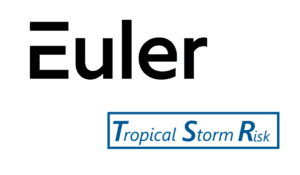What is missing tooth clause in dental insurance?
What is missing tooth clause in dental insurance?
The vast majority of dental insurance plans carry a “missing tooth clause.” A missing tooth clause protects the insurance company from paying for the replacement of a tooth that was missing before the policy was in effect.
How much is a root canal in Texas without insurance?
The cost of root canal ranges from $600 to $1400. The average cost of a dental crown ranges from $600 to $2000. The cost of both treatments is inclusive of the exam, x-ray, and local anesthesia. Dec 20, 2021
What is the tooth next to the front teeth called?
Canines are the sharp, pointed teeth that sit next to the incisors and look like fangs. Dentists also call them cuspids or eyeteeth. Canines are the longest of all the teeth, and people use them to tear food. Both children and adults have four canines.
Can use CPF to pay dental?
According to the CPF Board, only dental treatments that involve surgery and performed due to medical reasons is MediSave claimable. You will be able to enjoy non-surgical treatments at subsidised rates if you have a CHAS card.
Can I use CPF for dental?
Dental treatments are generally not claimable under the MediSave scheme unless the treatment involves surgery and is performed due to medical reasons. Non-surgical dental treatments such as extractions, crowning, dentures or braces are not MediSave-claimable.
How long do root canals last?
Root Canal Treatment Success Rate According to this report, 98 percent of root canals last one year, 92 percent last five years, and 86 percent last ten years or longer. Molars treated by endodontists had a 10 year survival rate, significantly higher than that of molars treated by general dentists. Jun 3, 2021
What are the signs you need a root canal?
Root canal symptoms Persistent pain. Persistent tooth pain is one of the signs that you may need a root canal. … Sensitivity to heat and cold. … Tooth discoloration. … Swollen gums. … Pain when you eat or touch the tooth. … A chipped or cracked tooth. … Tooth mobility. Dec 20, 2019
Is DPO same as PPO?
DPO Dental Plan The DPO plan is available as a Preferred Provider Organization (PPO) or Point of Service (POS) and is typically self-insured. Feb 11, 2021
Is Delta Dental PPO the same as DPO?
Delta Dental Premier® and Delta Dental PPOSM are underwritten by Delta Dental Insurance Company in Texas. Delta Dental PPO is underwritten as a Dental Provider Organization (DPO) plan.
Is Delta Dental good insurance?
We award Delta Dental a final rating of 3 out of 5 stars. The carrier has several decades’ worth of experience in the insurance industry and is highly rated by AM Best and the BBB. Their products are offered nationwide through independent agencies. Sep 12, 2021
Is Delta Dental USA a PPO or HMO?
Delta Dental PPO, our preferred provider organization (PPO) plan, provides access to the largest PPO dentist network in the U.S. Delta Dental PPO dentists agree to accept reduced fees for covered procedures when treating PPO patients.
Is Invisalign covered by Delta Dental?
Delta Dental plans don’t cover at-home clear aligners. Don’t expect to receive assistance with your at-home aligner treatment if you have a Delta plan.
Is HMO or PPO better?
A PPO plan can be a better choice compared with an HMO if you need flexibility in which health care providers you see. More flexibility to use providers both in-network and out-of-network. You can usually visit specialists without a referral, including out-of-network specialists. Jul 1, 2019
What is PPO good for?
A PPO is generally a good option if you want more control over your choices and don’t mind paying more for that ability. It would be especially helpful if you travel a lot, since you would not need to see a primary care physician. Oct 1, 2017
Do dentists recommend Byte?
Do Dentists Recommend Byte? Yes, many dentists treat a significant number of teeth conditions with Byte. For severe cases, the American Dental Association (ADA) is against the use of home aligner treatment.



